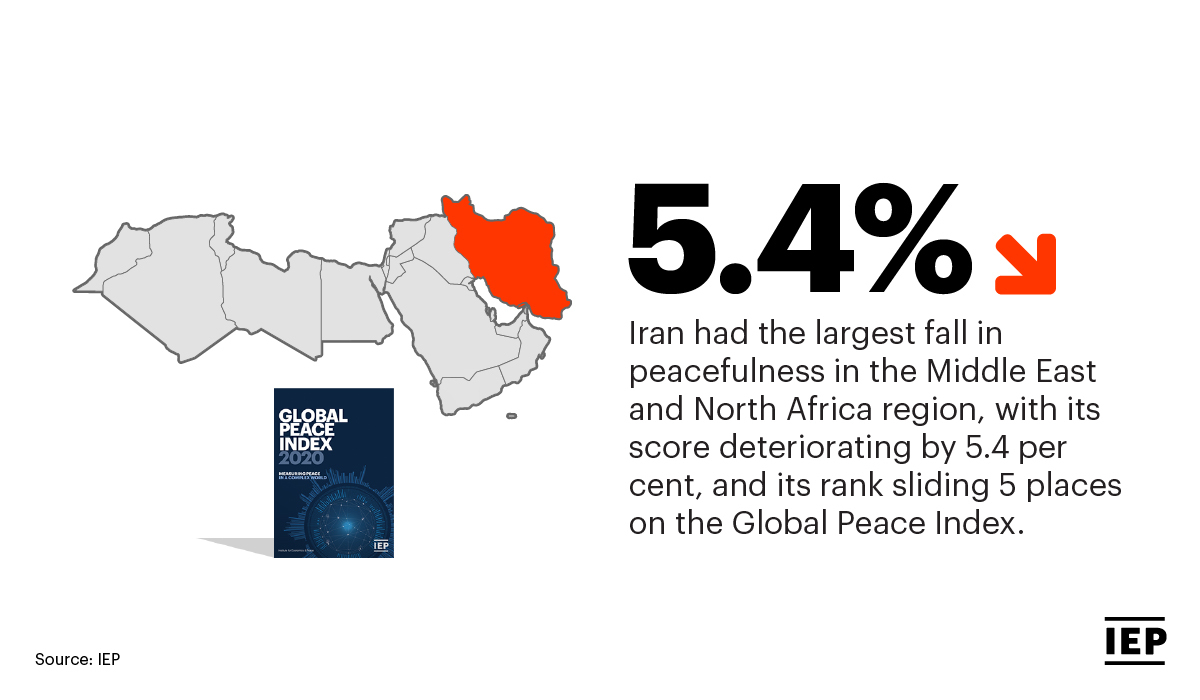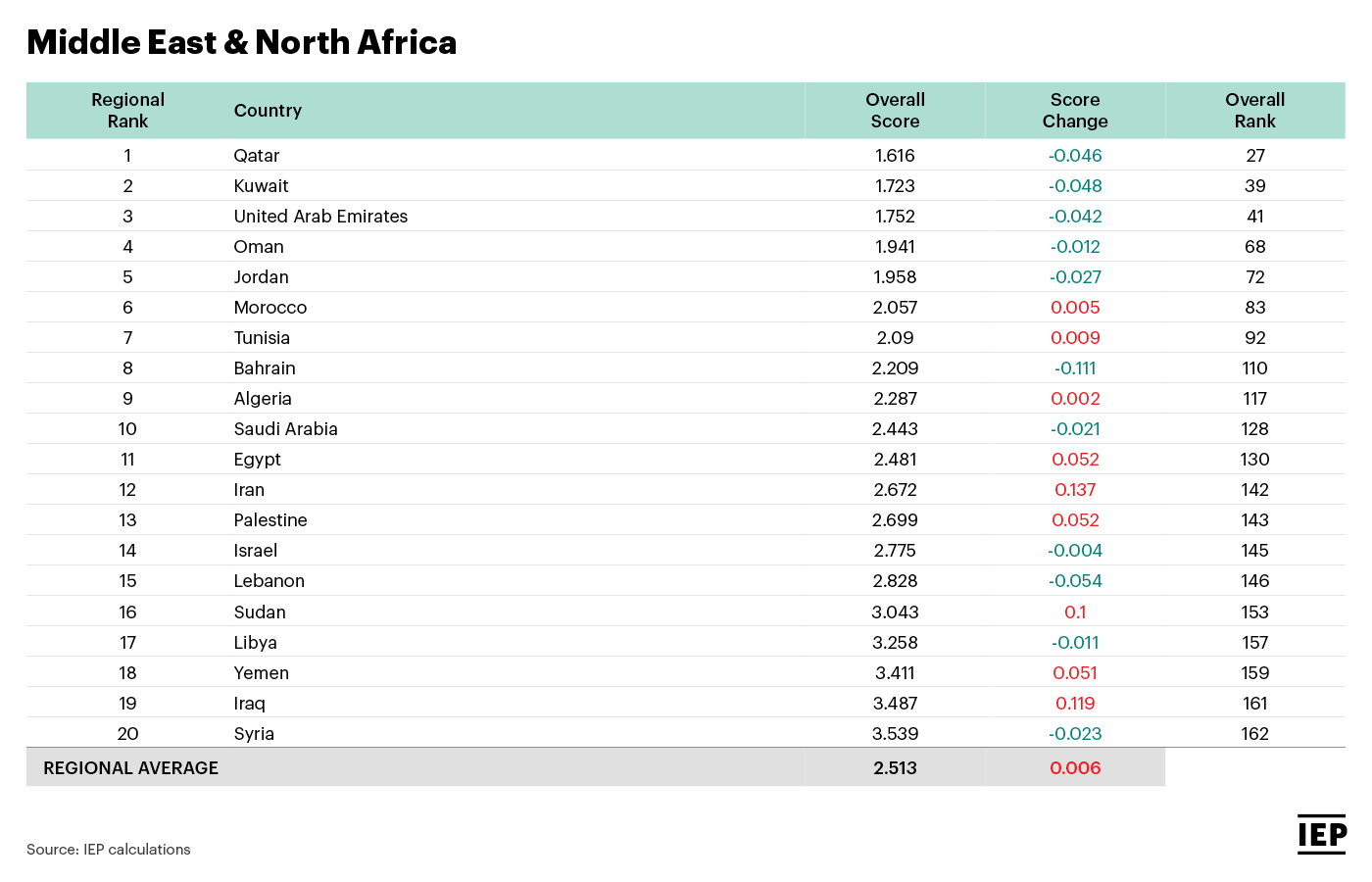Research from the 2020 Global Peace Index (GPI) shows Iran had the largest fall in peacefulness in the Middle East and North Africa region, with its score deteriorating by 5.4 per cent.
It deteriorated across all three GPI domains, with the largest deterioration occurring in Safety and Security. The country is now ranked at 142 out of 163 countries, a deterioration of five rankings from the previous year.

Political instability and the prospect of more violent protests in Iran continue to be the key drivers of deteriorating peacefulness.
Iran has also been plagued by sporadic unrest largely owing to the impact of rising inflation and poor living standards on the population, combined with anger at elite level corruption and economic mismanagement.
Given that inflation has soared and the currency continues to depreciate, public anger is increasingly likely to boil over into violent protests. In January 2020, Iranians had called for the resignation of Supreme Leader Ali Khamenei, after months of unrest sparked by a rise in fuel prices.

Iran also faces significant environmental risks that could affect levels of peacefulness in the future. The 2020 Ecological Threat Register shows that the country has high exposure to ecological threats.
With a population of 84 million, Iran contains the second largest number of people at risk to adverse ecological events after Pakistan, and lacks the resilience to cope effectively.
While Iran is one of the five countries with the highest levels of water stress alongside Qatar, Israel, Lebanon, and Jordan, floods pose the biggest ecological threat to the country.
In 2019, more than half-a-million people were displaced after five natural disasters.